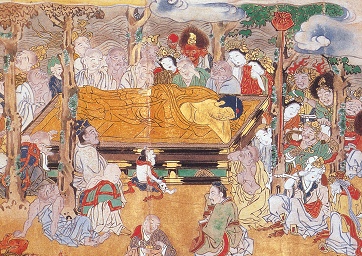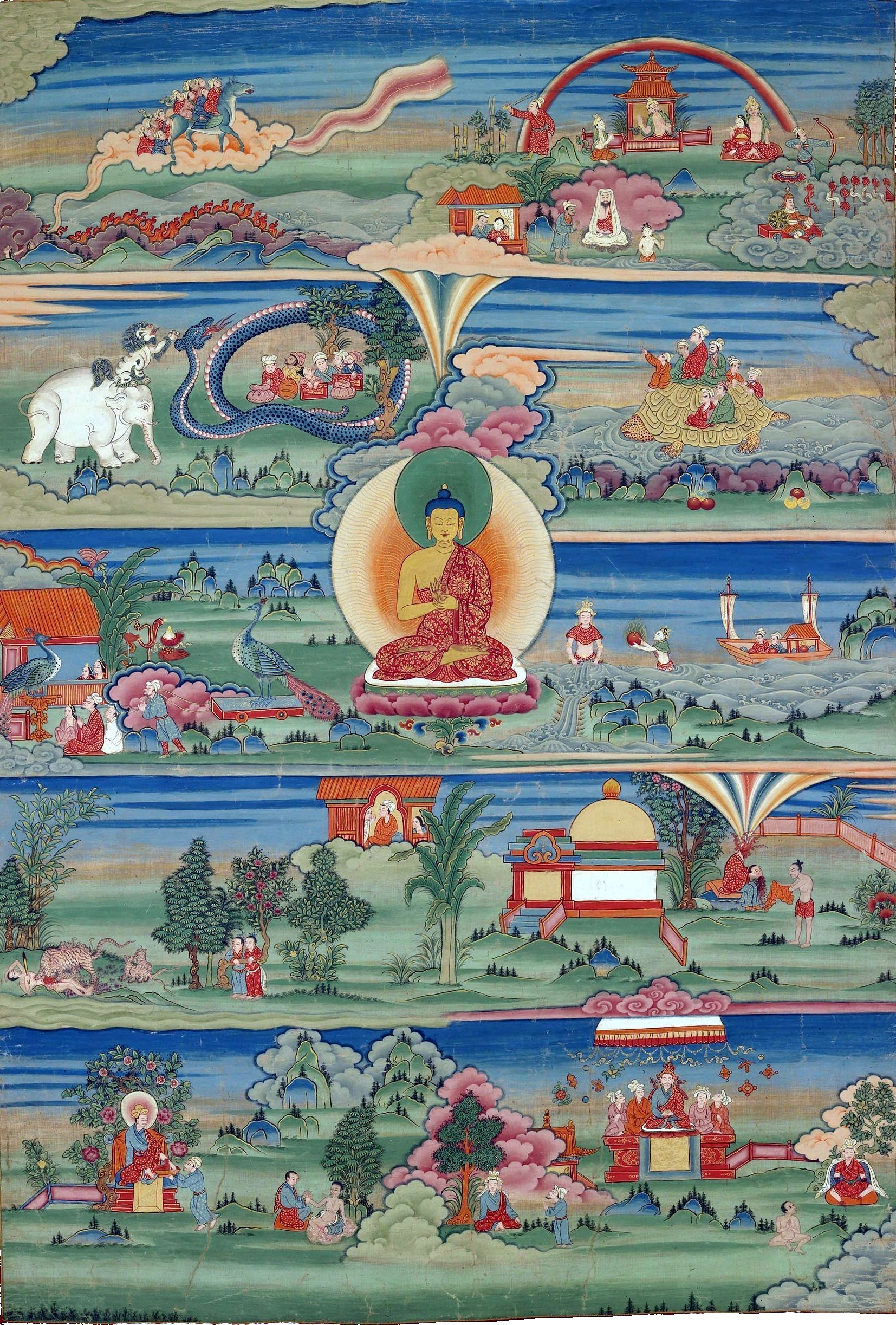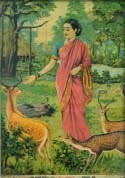I’m Skip Bayles, and we have a very interesting show for you tonight. As we all know, this year’s draft just came to a close. As always, it was full of surprises. With Tebow returning to the Denver Broncos, Ray Lewis returning for a victory lap with the Baltimore Ravens, and the “out-of-left-field” drafting of OU’s Baker Mayfield to the Houston Texans, there is a lot to talk about.
BUT...what really has everybody buzzing is the shocking pickup of Shri Krishna by Arjuna of the Pandavas.
Recently returning from a 12-month suspension for foul play, the Pandavas were looking to bounce back with force. With this resurgence, everyone had figured that they would make a beeline for Krishna. But they weren’t the only ones who had their eye on the prize.
Duryodhana of the Kauravas pursued Krishna with the same tenacity. The rivalry between the Kauravas and the Pandavas goes back for decades and can arguably be considered the most heated rivalry in the world of sports. However, that is not the end to our story here. If you recall, it was the Kauravas who were responsible for the 12-month suspension of the Pandavas. So, folks, as you can see, there is a lot on the line here.
Now, Arjuna had always had Krishna on his radar. Since he was a young'un, Arjuna had always admired and respected Krishna above any other player in the game. In his eyes, victory was inherent with the help of Krishna. Facing the Kauravas in their first game back from suspension, Arjuna hastened to Krishna in preparation for war. Little did he know, Duryodhana had beaten him to the chase.
Surprisingly enough, this didn’t affect Krishna’s decision. The constant nagging and pompous attitude of Duryodhana rubbed Krishna the wrong way. For this reason, he gave Arjuna the first pick.
The choice was simple-Krishna or an entire roster of players. BUT, to spice things up even more, Krishna had announced to the men that he would retire from play. Now, with any rational thought one can basically rule out Krishna as useless. However, Arjuna’s lifelong devotion to Krishna held true and he chose him without a second thought. Even Krishna was surprised.
Durydohana, like the rest of us, basically took Krishna out of the picture once he learned that he would not suit up. So he was elated when he was essentially handed a full roster of fresh players eager to prove themselves.
After the deals were done and the papers were signed, Krishna and Arjuna met to talk things over. Luckily, Arjuna somehow managed to convince Krishna that he would be useful as an offensive coordinator. If he couldn’t play, he could at least help guide Arjuna through the game. Now, this folks, could turn out to be a huge game-changer. Krishna’s wisdom and presence is unmatched by any.
We spoke with Arjuna this afternoon about the whole ordeal and asked why in the world he was so optimistic about his new draft pick and he simply replied, “If you were going into the Super Bowl, would you rather have Tom Brady or the entire Fighting Tigers Pee Wee Team ?”

Skip Bayles on ESPN's First Take: Wiki Commons
Author’s Note. This story is based on the episode Krishna and His Army, found in the Public Domain Edition Mahabharata. In this episode, the Pandavas have just been freed from their twelve year exile and are preparing for the inevitable battle with the Kausavas. As it has been demonstrated through various points in the epic, Arjuna has an immense adoration for Krishna and so seeks his help for the pending battle. However, Durydohana has the same thoughts so he seeks his help too. Ultimately, Arjuna makes the shocking decision to take Krishna over an army of one hundred million soldiers. This is even more shocking because Krishna declares he will not fight in the battle himself. So, both Durydohana and Arjuna go home from the deal content with their pickings. However, as the story develops you begin to see how Arjuna made the right decision. I chose this story because I think it demonstrates that it is not the size of the dog in the fight, but the size of the fight in the dog. I thought of the idea for the ESPN adaptation after reading Heather’s story written as a TV show review. I thought it was a cool twist so I tried to imitate that a little bit.
















